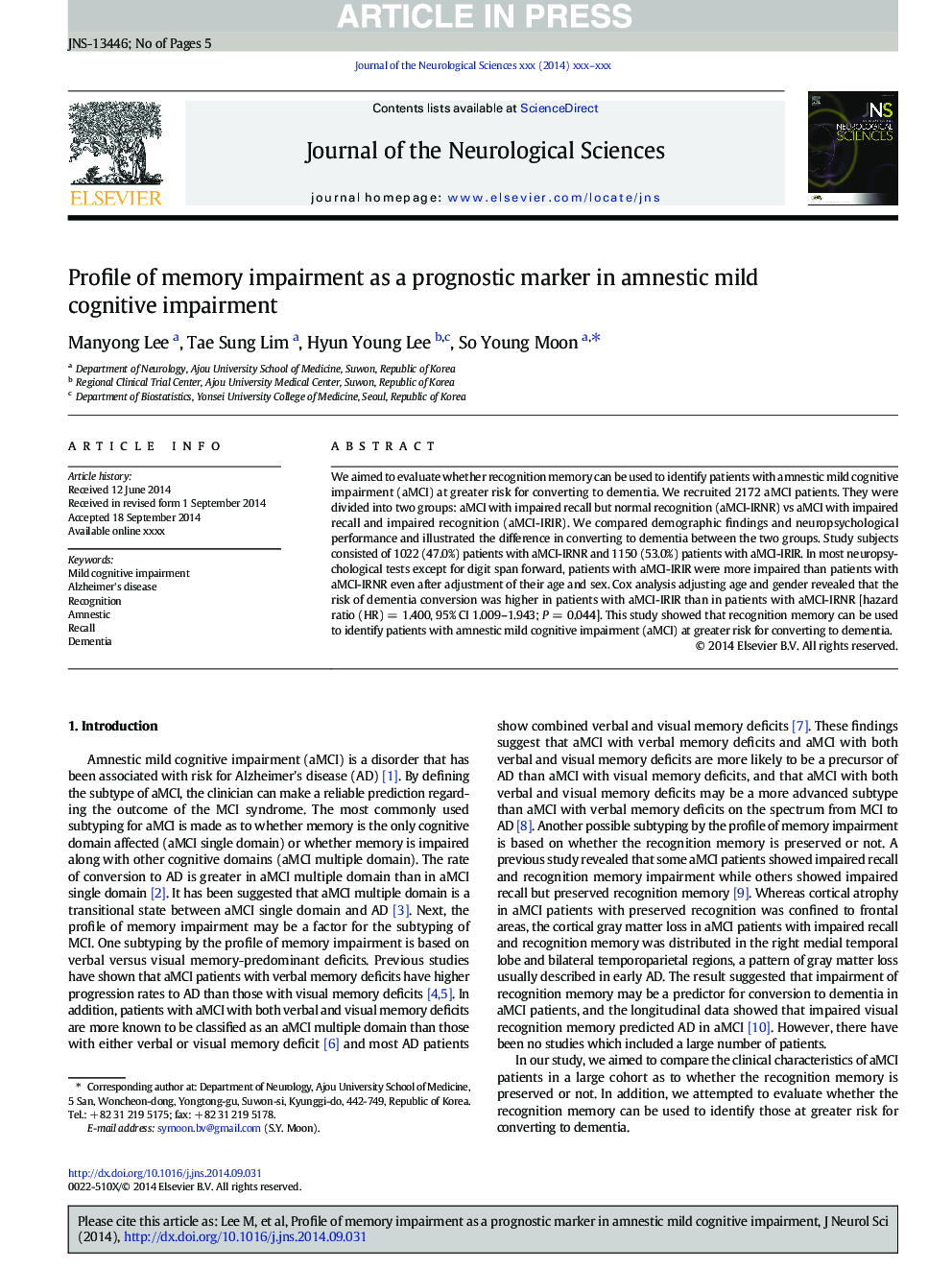| Article ID | Journal | Published Year | Pages | File Type |
|---|---|---|---|---|
| 8276587 | Journal of the Neurological Sciences | 2014 | 5 Pages |
Abstract
We aimed to evaluate whether recognition memory can be used to identify patients with amnestic mild cognitive impairment (aMCI) at greater risk for converting to dementia. We recruited 2172 aMCI patients. They were divided into two groups: aMCI with impaired recall but normal recognition (aMCI-IRNR) vs aMCI with impaired recall and impaired recognition (aMCI-IRIR). We compared demographic findings and neuropsychological performance and illustrated the difference in converting to dementia between the two groups. Study subjects consisted of 1022 (47.0%) patients with aMCI-IRNR and 1150 (53.0%) patients with aMCI-IRIR. In most neuropsychological tests except for digit span forward, patients with aMCI-IRIR were more impaired than patients with aMCI-IRNR even after adjustment of their age and sex. Cox analysis adjusting age and gender revealed that the risk of dementia conversion was higher in patients with aMCI-IRIR than in patients with aMCI-IRNR [hazard ratio (HR)Â =Â 1.400, 95% CI 1.009-1.943; PÂ =Â 0.044]. This study showed that recognition memory can be used to identify patients with amnestic mild cognitive impairment (aMCI) at greater risk for converting to dementia.
Related Topics
Life Sciences
Biochemistry, Genetics and Molecular Biology
Ageing
Authors
Manyong Lee, Tae Sung Lim, Hyun Young Lee, So Young Moon,
